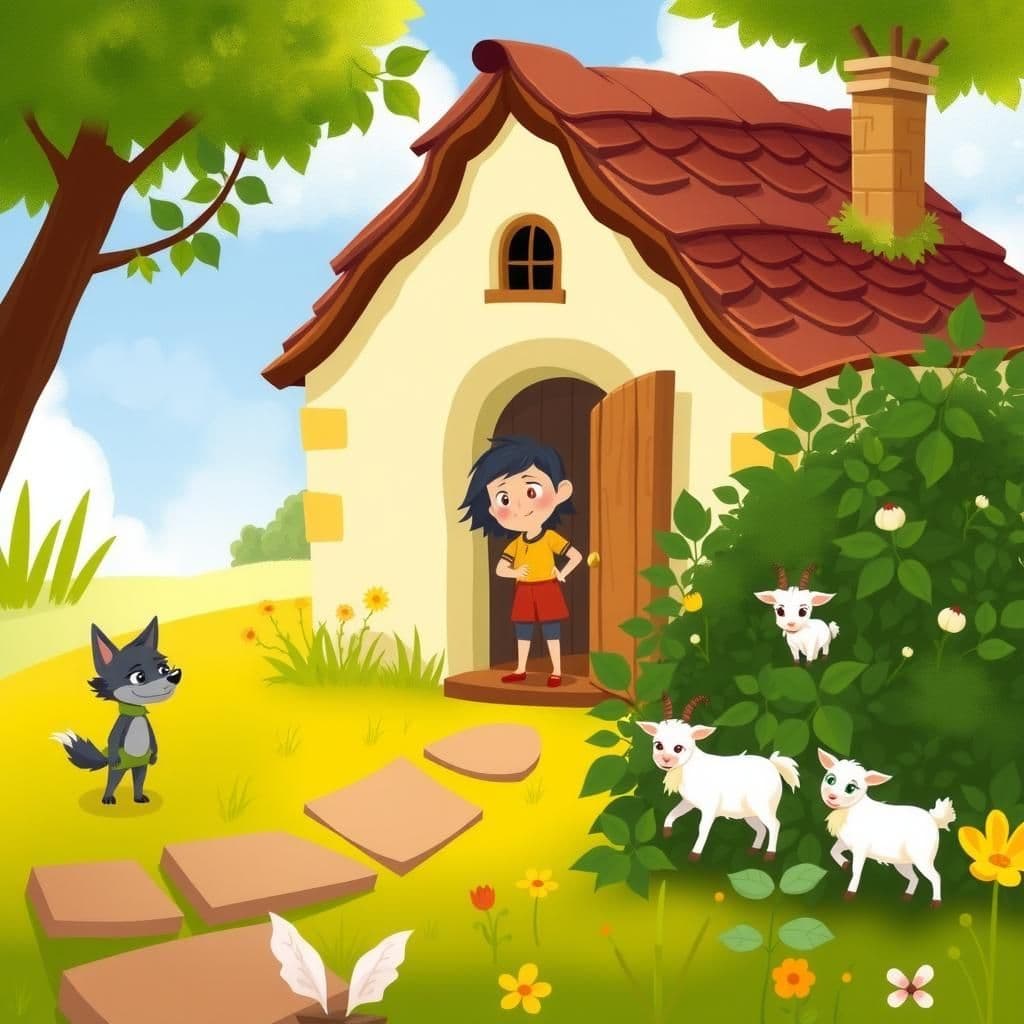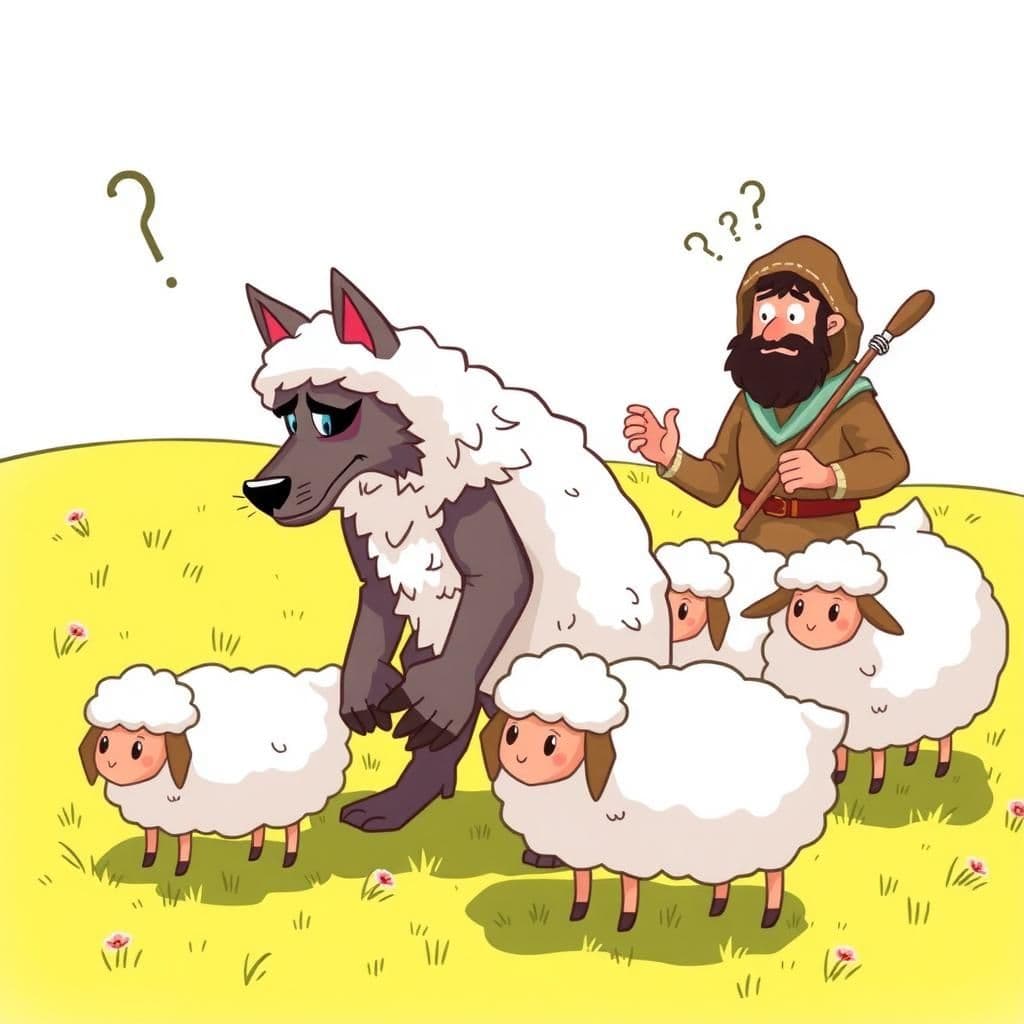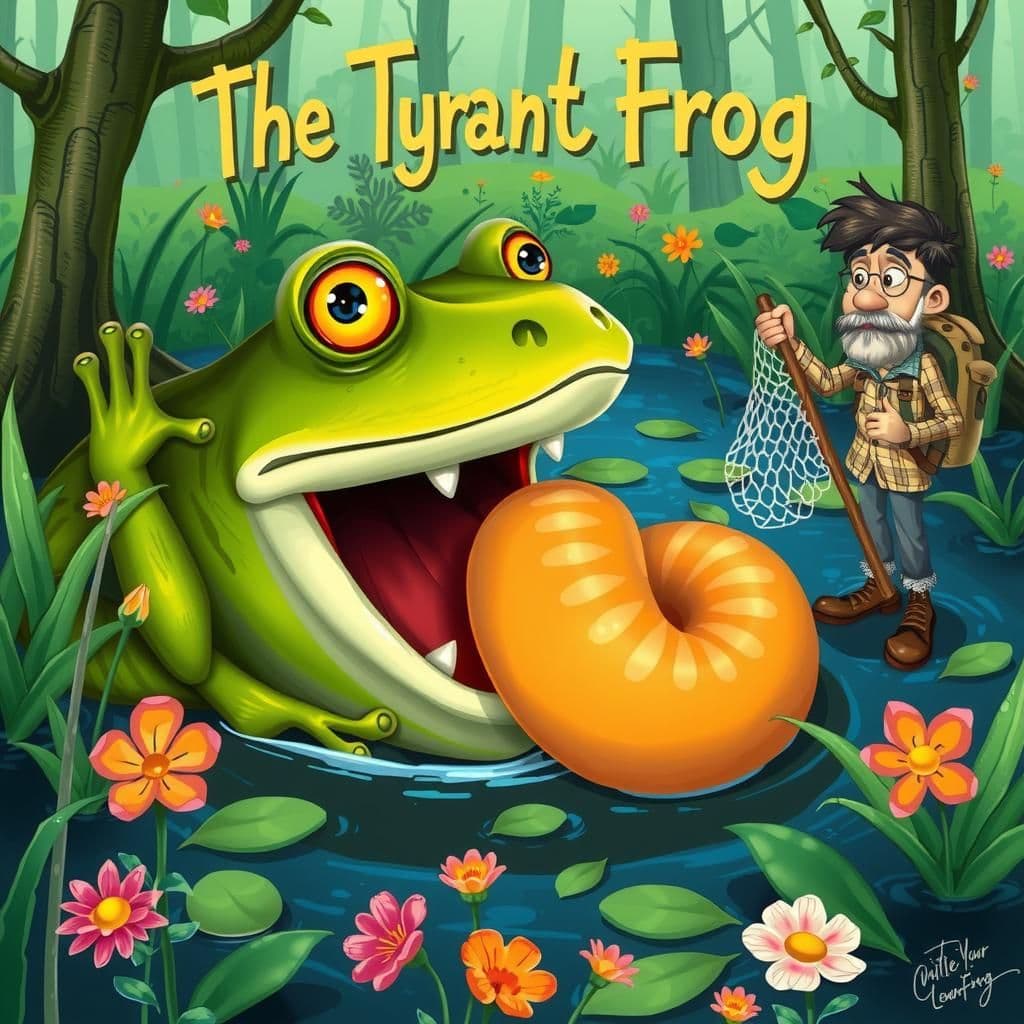The Wolf, the Nanny-Goat, and The Kid

Story Summary
In the inspirational short story "The Wolf, the Nanny-Goat, and The Kid," a clever Kid learns the importance of caution and having multiple safeguards against deception when he refuses to let in the Wolf, despite the creature knowing the password. This timeless moral story emphasizes that two guarantees are better than one, illustrating a valuable lesson for kids in discerning trustworthiness. Such short stories for students with moral lessons make for great additions to any collection of moral tales.
Click to reveal the moral of the story
The story emphasizes the importance of verifying identities and being cautious, as relying solely on words can lead to danger.
Historical Context
"The Wolf, the Nanny-Goat, and The Kid" is a fable attributed to the ancient oral tradition of storytelling, with roots in Aesop's Fables, which often impart moral lessons through animal characters. This tale, echoing themes of caution and cleverness, has been retold in various cultures, emphasizing the importance of vigilance against deceit and the value of verification over blind trust. The story reflects the broader tradition of fables that communicate wisdom, often highlighting the contrast between innocence and the predatory nature of the wolf archetype.
Our Editors Opinion
In today's world, where misinformation and deception are rampant, the story of "The Wolf, the Nanny-Goat, and The Kid" underscores the importance of vigilance and discernment in protecting ourselves from potential threats. For instance, an individual receiving a suspicious email claiming to be from their bank might remember this fable and decide to verify the sender's identity and look for additional signs of legitimacy before revealing any personal information, thereby avoiding a phishing scam.
You May Also Like

The Wolf in Sheeps Clothing
In this easy small story with a moral, a Wolf disguises himself in sheep's clothing to deceive the shepherd and gain access to the flock. However, his plan backfires when the shepherd, mistaking him for a sheep, kills him instead. This life-changing story illustrates that those who seek to harm others often end up facing harm themselves, reminding us of the importance of integrity.

The Tyrant Frog
In "The Tyrant Frog," a clever fable with a moral, a snake being swallowed by a frog pleads for help from a passing naturalist, who misinterprets the situation as a simple dining scenario. The naturalist, more focused on acquiring a snakeskin for his collection, highlights the importance of understanding context before jumping to conclusions. This easy small story serves as a valuable lesson in awareness and perspective, making it a fitting addition to short story collections with moral themes for personal growth.

A Saying Of Socrates
In this wisdom-packed moral story, Socrates faces criticism for the size and design of his new house, as many claim it is unworthy of him. However, he wisely reflects that the house is actually too large for his few true friends, highlighting the rarity of genuine friendship amidst the many who profess to be friends. This classic moral story serves as a timeless lesson for students about the true nature of companionship, making it ideal for moral stories for class 7.
Other names for this story
The Clever Kid's Challenge, The Wolf's Deception, Nanny-Goat's Secret, The Kid's Smart Choice, Wolf in Disguise, The Cunning Kid, Trust Your Instincts, The Nanny-Goat's Wisdom
Did You Know?
This fable illustrates the importance of vigilance and the value of prudence in the face of deception, emphasizing that trusting a single sign or password can be perilous; it is wise to seek additional confirmation before taking risks. The cleverness of the Kid in demanding to see the wolf's white paw serves as a reminder that caution and critical thinking can protect us from potential threats.
Subscribe to Daily Stories
Get a new moral story in your inbox every day.